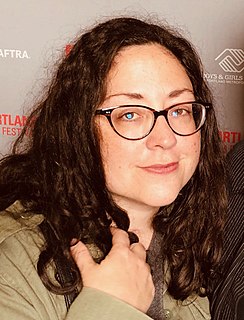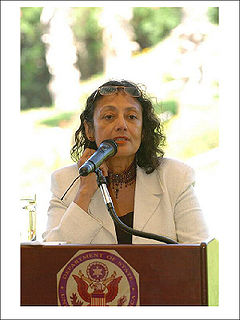A Quote by Leni Zumas
Even while I was working on the novel I would also write short stories as relief, just to be in a wieldier world that could negotiated more easily and more quickly. In the novel, I even changed the narrator from a man to a woman.
Related Quotes
I always was interested in prose. As a teenager, I published short stories. And I always wanted to write the long short story, I wanted to write a novel. Now that I have attained, shall I say, a respectable age, and have had experiences, I feel much more interested in prose, in the novel. I feel that in a novel, for example, you can get in toothbrushes and all the paraphernalia that one finds in dally life, and I find this more difficult in poetry.
I'm one of those writers who started off writing novels and came to writing short stories later, partly because I didn't have the right ideas, partly because I think that short stories are more difficult. I think learning to write short stories also made me attracted toward a paring down of the novel form.
Why do I like to write short stories? Well, I certainly didn't intend to. I was going to write a novel. And still! I still come up with ideas for novels. And I even start novels. But something happens to them. They break up. I look at what I really want to do with the material, and it never turns out to be a novel.
I've always loved short stories. Even before I was a writer I was reading short stories - there were certain writers where I just felt like they could do in a short story what so many writers needed a whole novel to do, and that was really inspiring to me. Alice Munro, I felt that way about from an early time. Grace Paley.
While working on my first five books, I kept wishing I was writing a novel. I thought until you wrote a novel, you weren't taken seriously as a writer. It used to trouble me a lot, but nothing troubles me now, and besides, there has been a change. I think short stories are taken more seriously now than they were.
I would also suggest that any aspiring writer begin with short stories. These days, I meet far too many young writers who try to start off with a novel right off, or a trilogy, or even a nine-book series. That's like starting in at rock climbing by tackling Mt. Everest. Short stories help you learn your craft.
Writing a book is something I actually feel like I could do. I don't know when that would happen, but I feel like if the right idea strikes, whether it be short stories or a novel or even a memoir that would be more substantial than most of the comedian memoirs people put out where it's big font and all the chapters are like ten pages long.
It's very bad to write a novel by act of will. I can do a book of nonfiction work that way - just sign the contract and do the book because, provided the topic has some meaning for me, I know I can do it. But a novel is different. A novel is more like falling in love. You don't say, 'I'm going to fall in love next Tuesday, I'm going to begin my novel.' The novel has to come to you. It has to feel just like love.




































